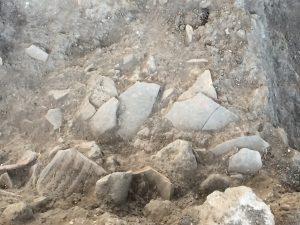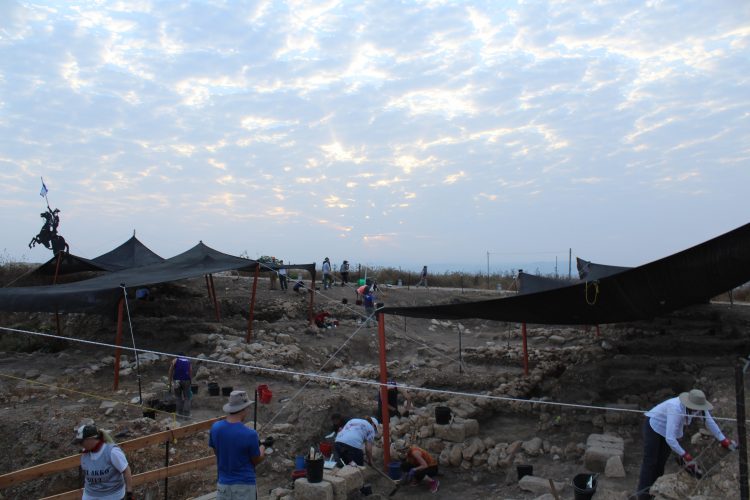Digging in the dirt is not an unfamiliar task for me. Having visited my grandparents’ farm throughout my life, I have often plowed gardens, put up fences, and weeded flower beds. And every now and then while digging, I’d find a broken piece of pottery in the fields.
It was a huge deal for me, and my grandma would show me all of the pieces she’d found over time. Most of them were from the late 1800’s, but to me it was mind-boggling to be holding something that someone else from over a hundred years ago touched too.
Now in the field, I find pot sherds, the official term for bits of broken pottery, as often as I find rocks. At Akko, we find pottery from 2,000 or 3,000-years-old instead of just one hundred. At the simplest level, dating these pot sherds lets us know what era we are digging in, for example, Byzantine (330-1453 C.E.) pottery is from the Byzantine occupation of the Tel. Each little piece we find helps us reconstruct the life of these people, from the other cultures they interacted with to the type of goods they sought, used, or sold.
Some of these are fragmented body sherds, meaning they are from the main part of the piece of pottery. Others offer more detail to the original shape of the vessel, like lip pieces. And when we’re really lucky, these sherds can be partially restored to show the original shape of the vessel, as we hope to do with this vessel from the area I am working in, SS 19.

Of course, for many people digging in hard packed soil for over six hours, five days a week, in the heat of the Israeli sun, just to find some broken bits of what someone else threw away, does not sound worth it. But for those of us who have an understanding of the importance of archaeology, we know every little sherd helps create a greater understanding of the past, and the people who lived in it.
This has been the greatest thrill for me in the field in these first few days out. Even when we carry 20 pound buckets of pottery sherds down the Tel and up the Tel, and spend hours with our backs bent over scrubbing off every particle of dirt we can manage off the sherd, these sherds never fail to lose their magic for me. I’m still as entranced on a Tel of Israel as I was at my grandparents’ farm to be connected to a person who lived such a different life in such a different way and time from me. Yet we become connected through something as small as a broken piece of pottery; trash to the ancients, treasure to me.

1 Comment